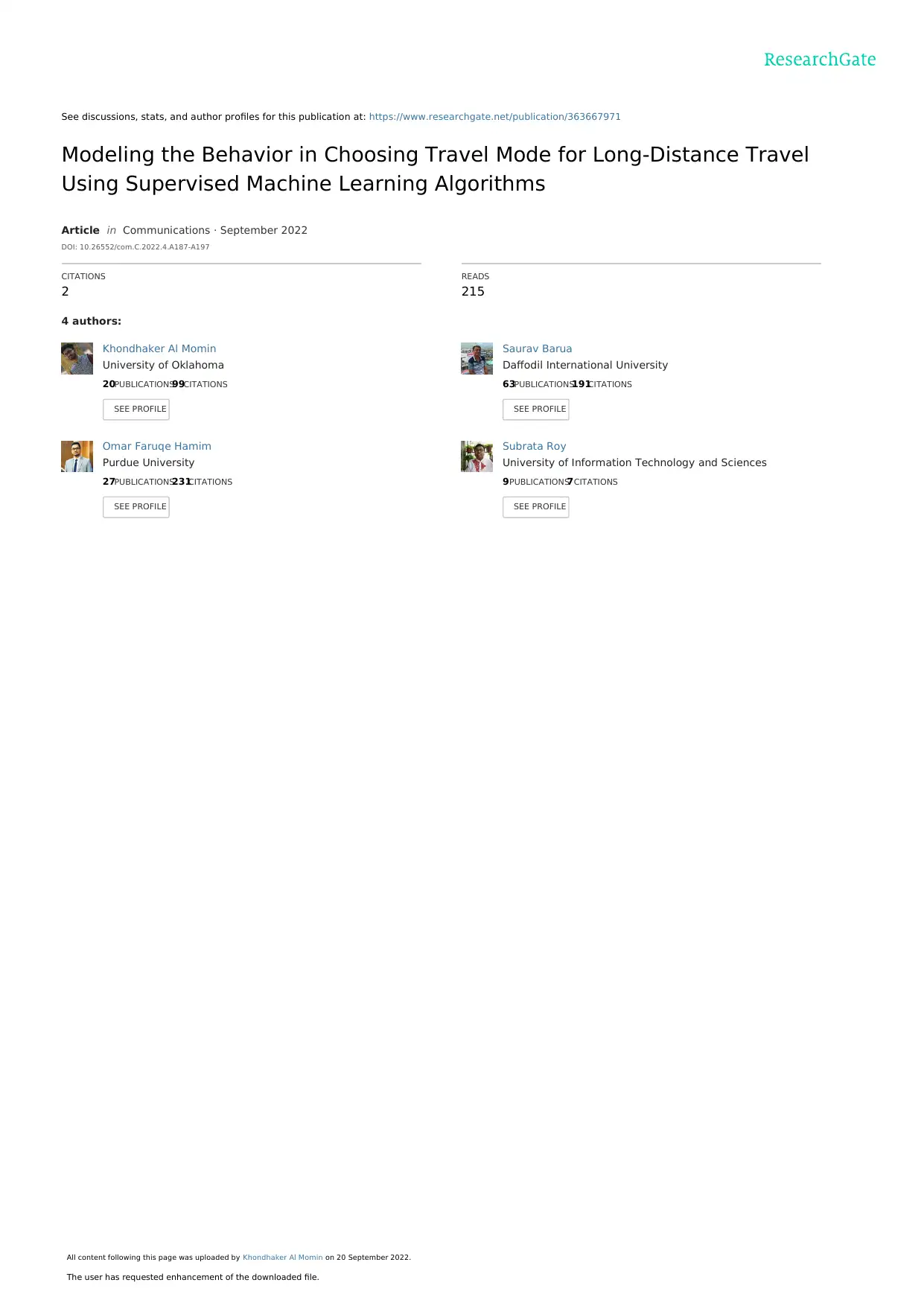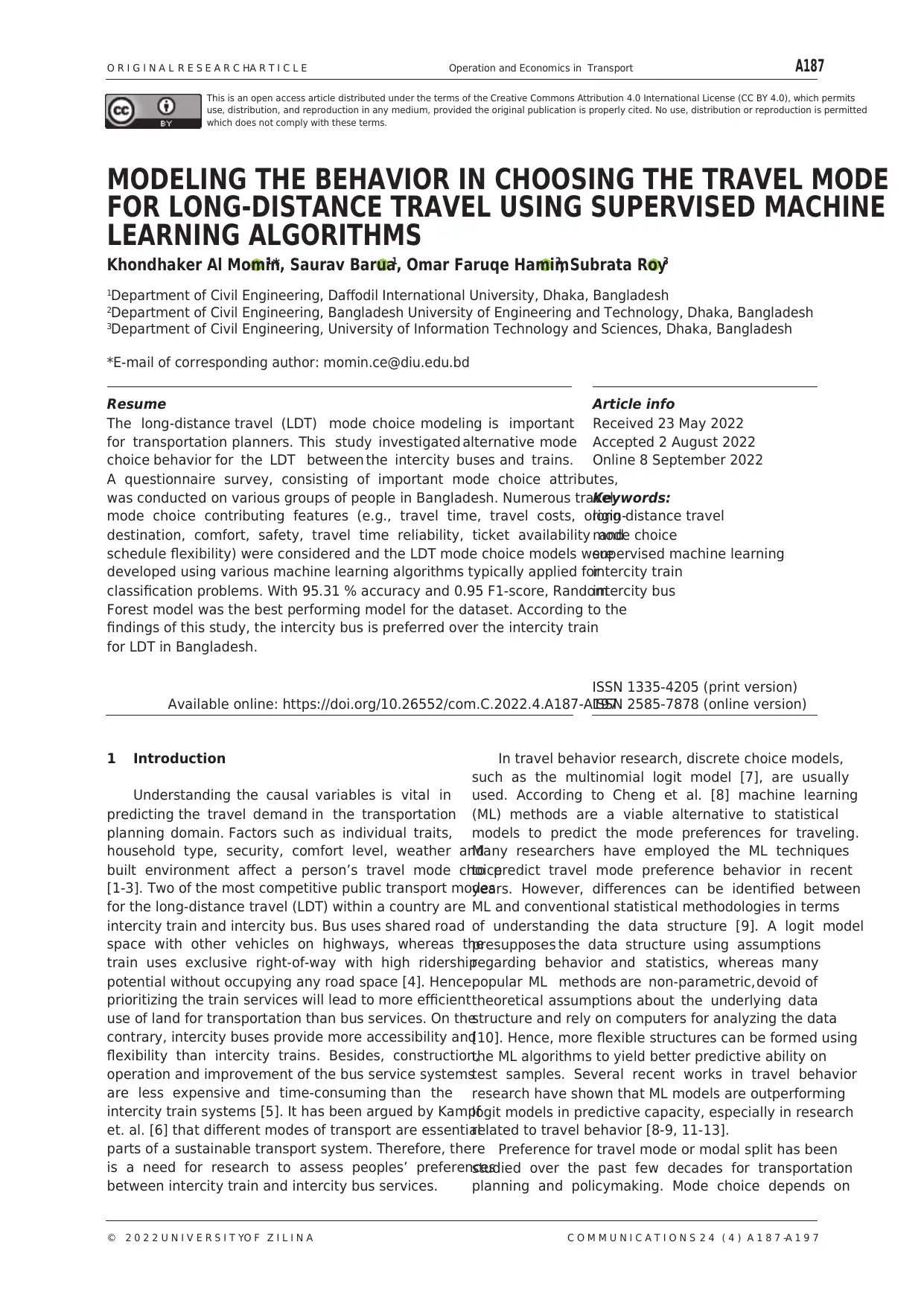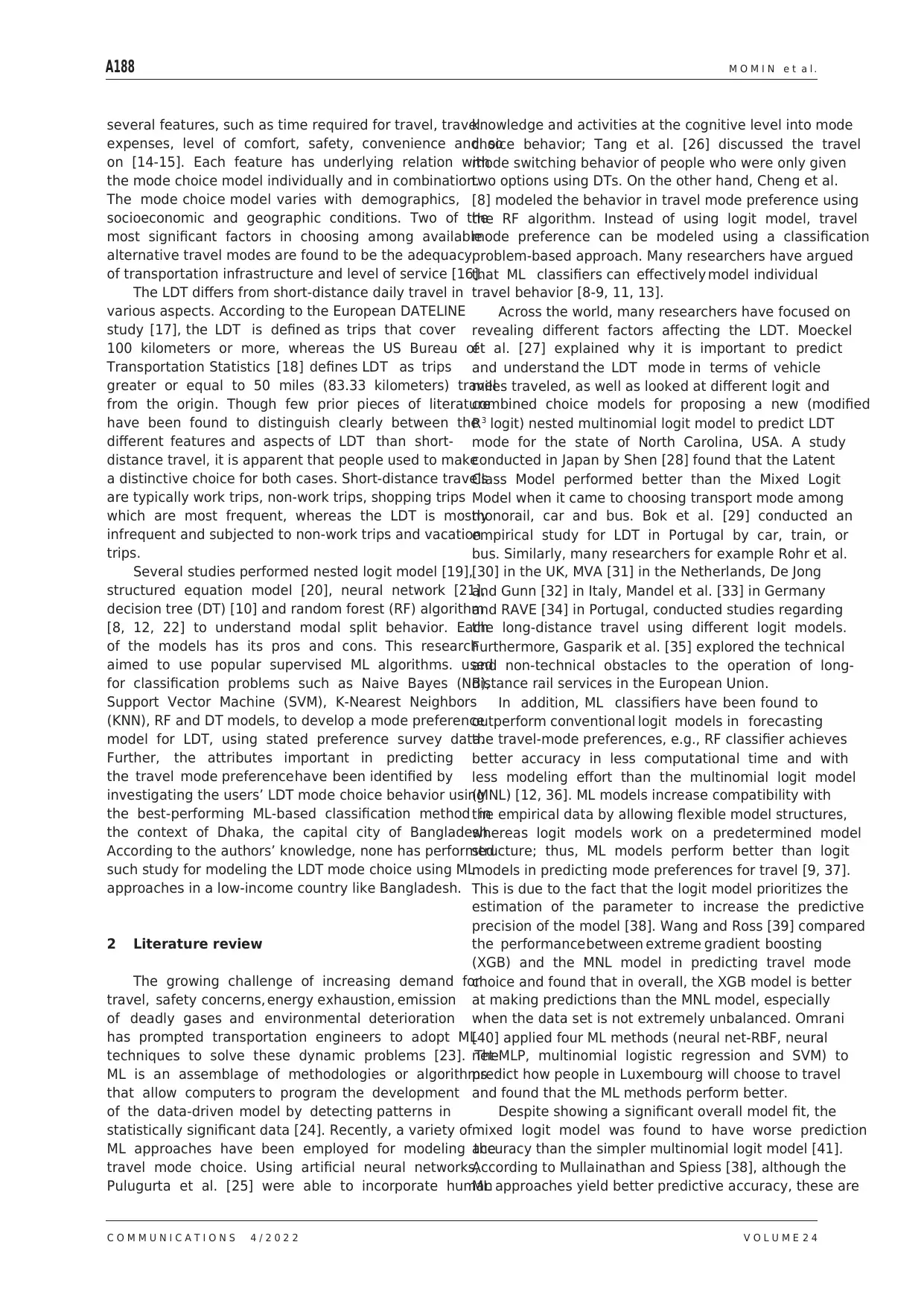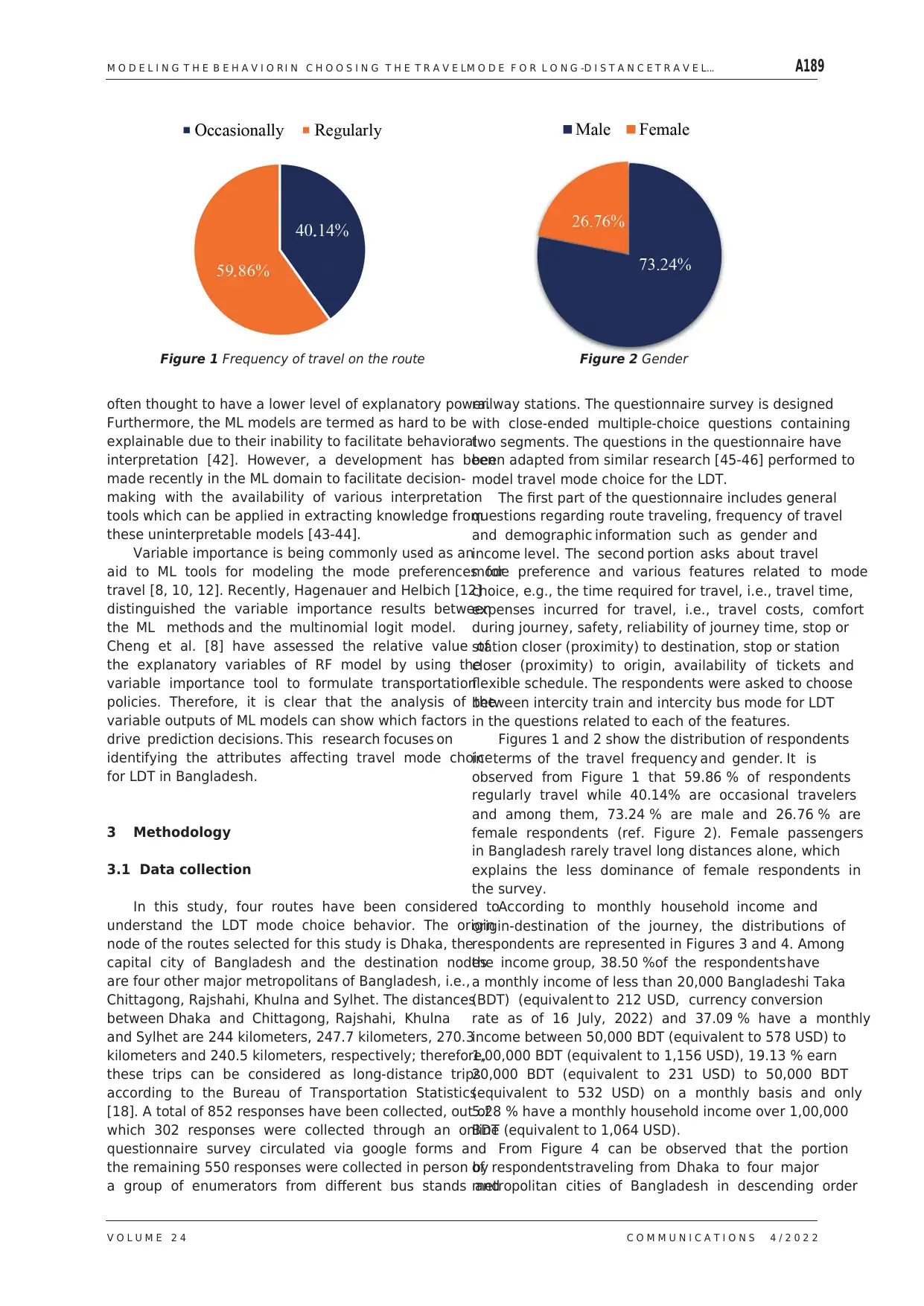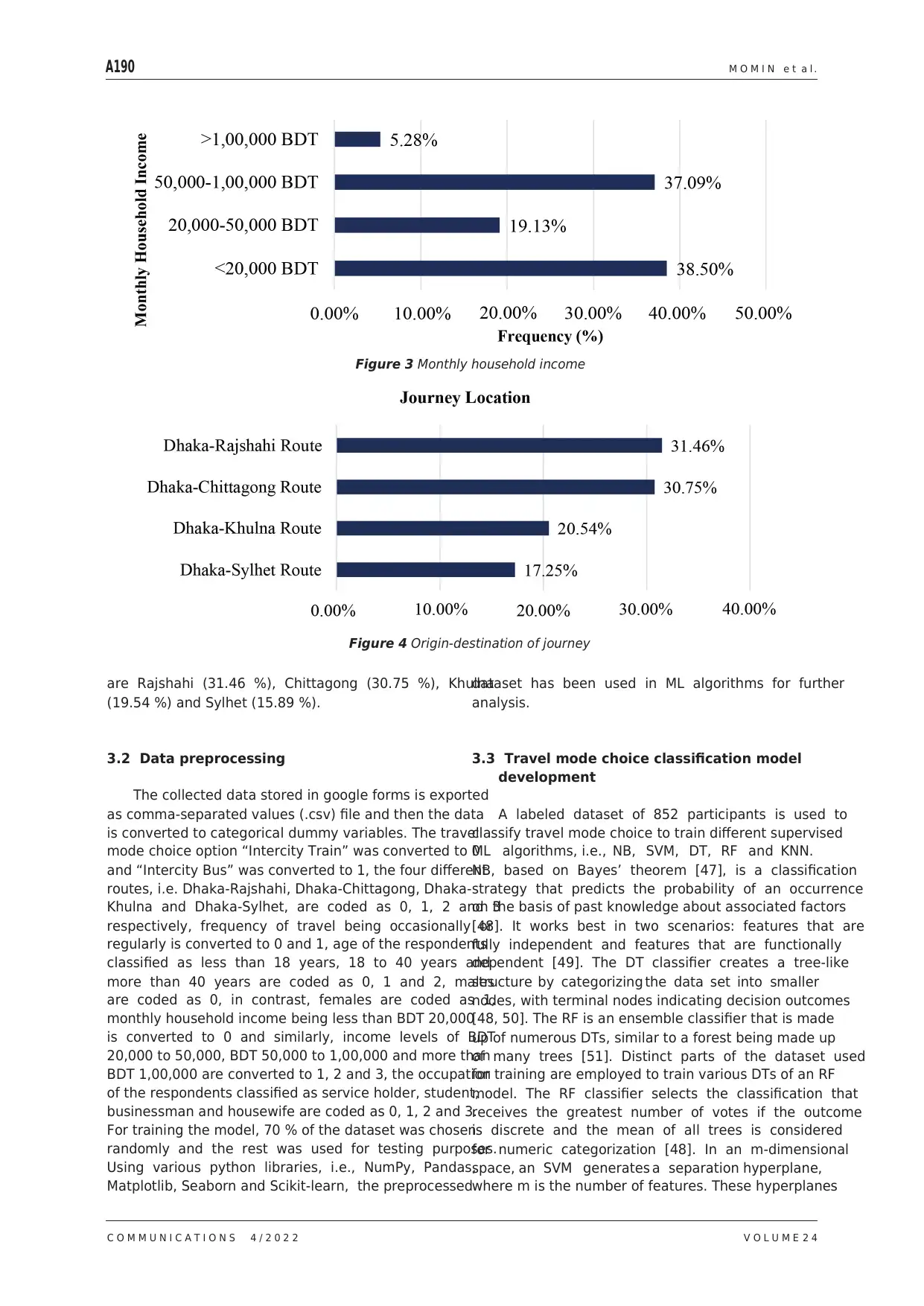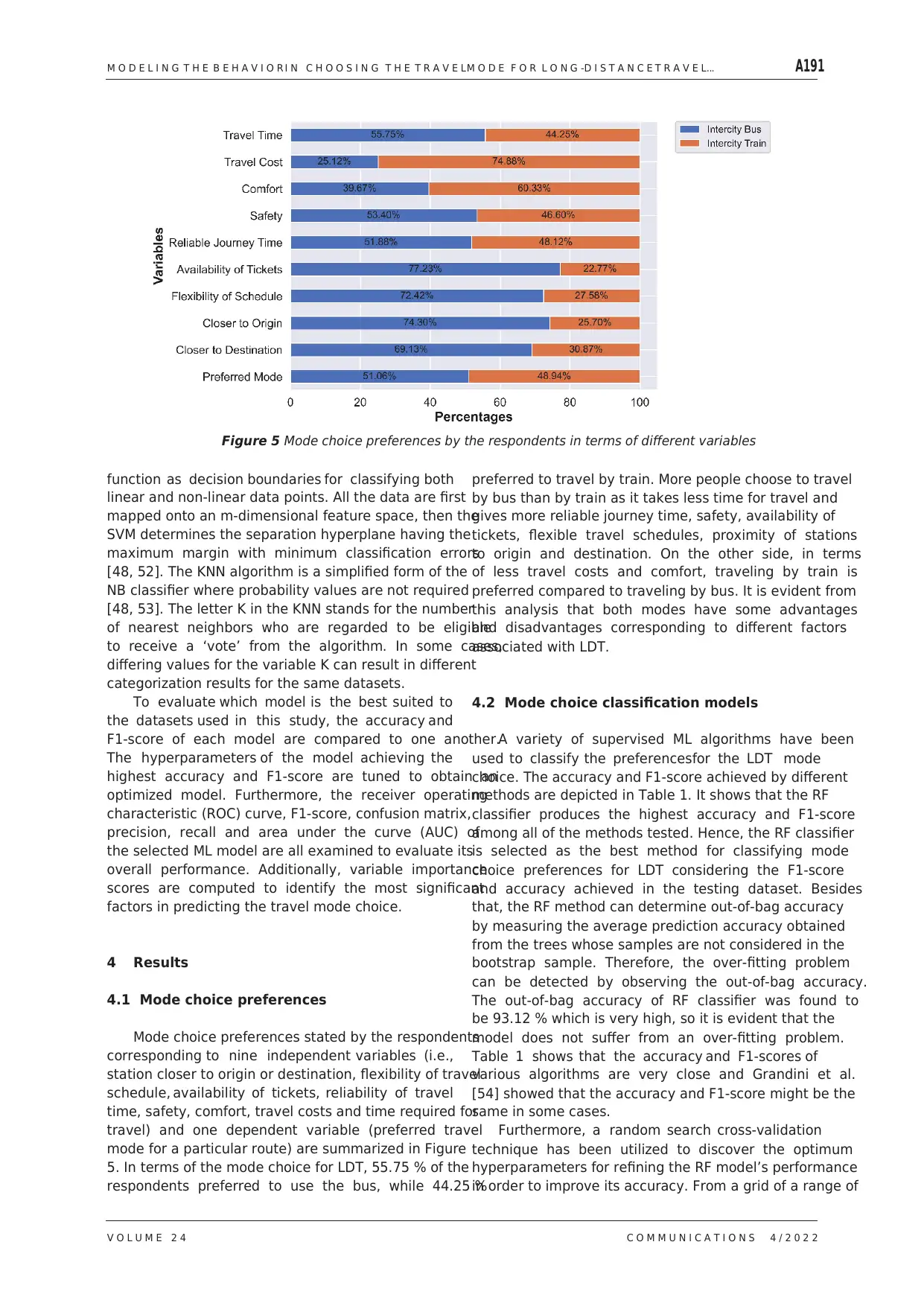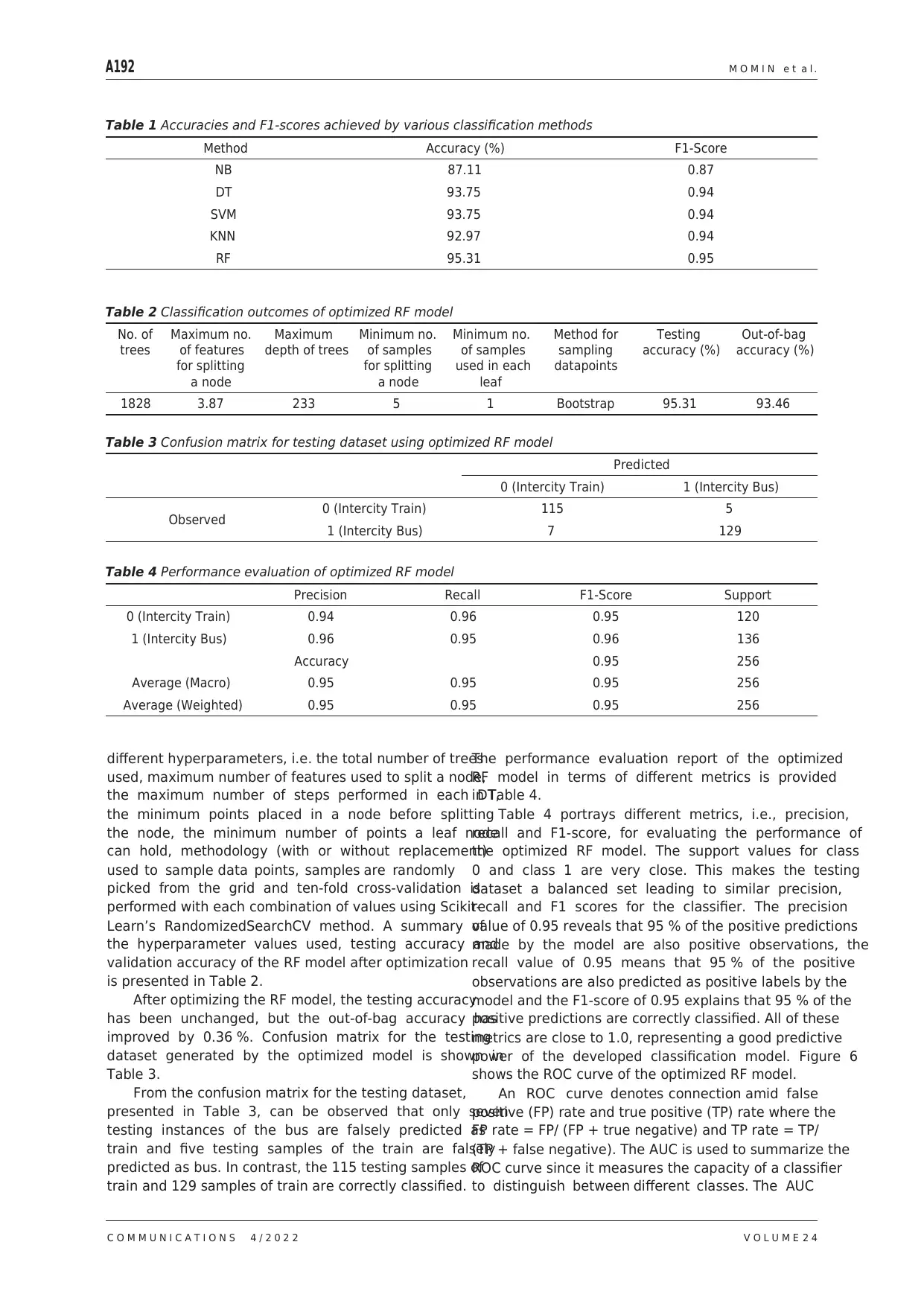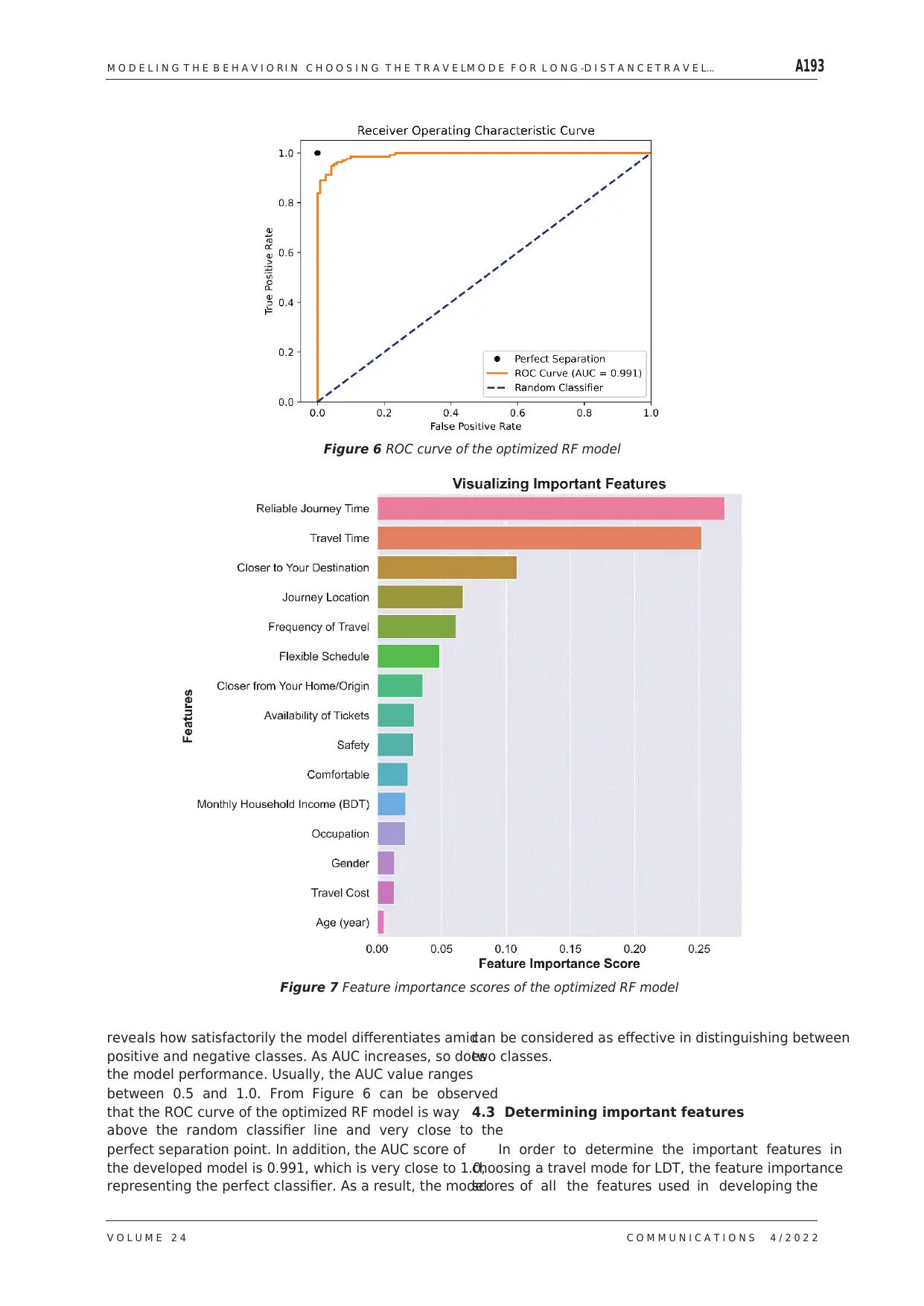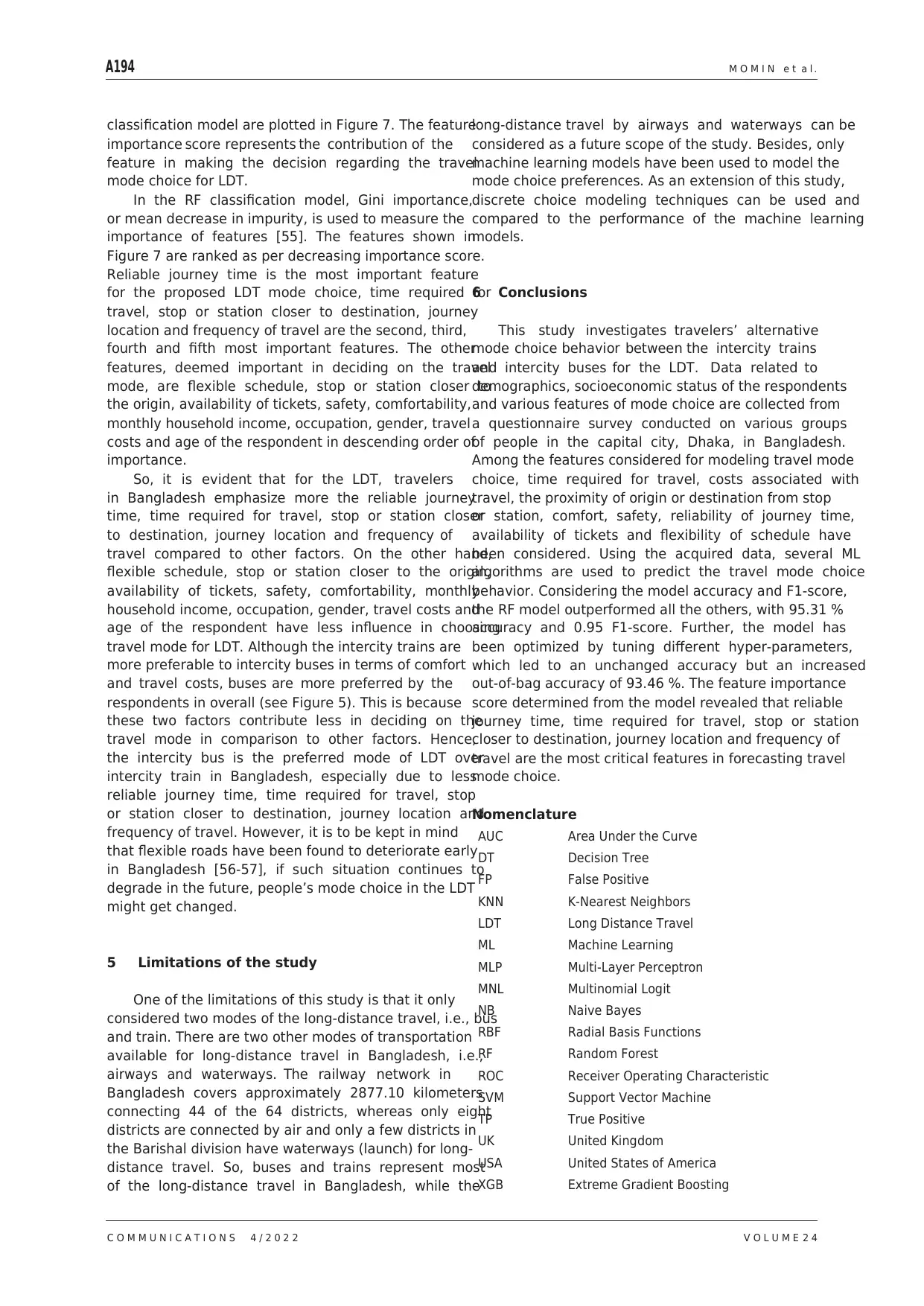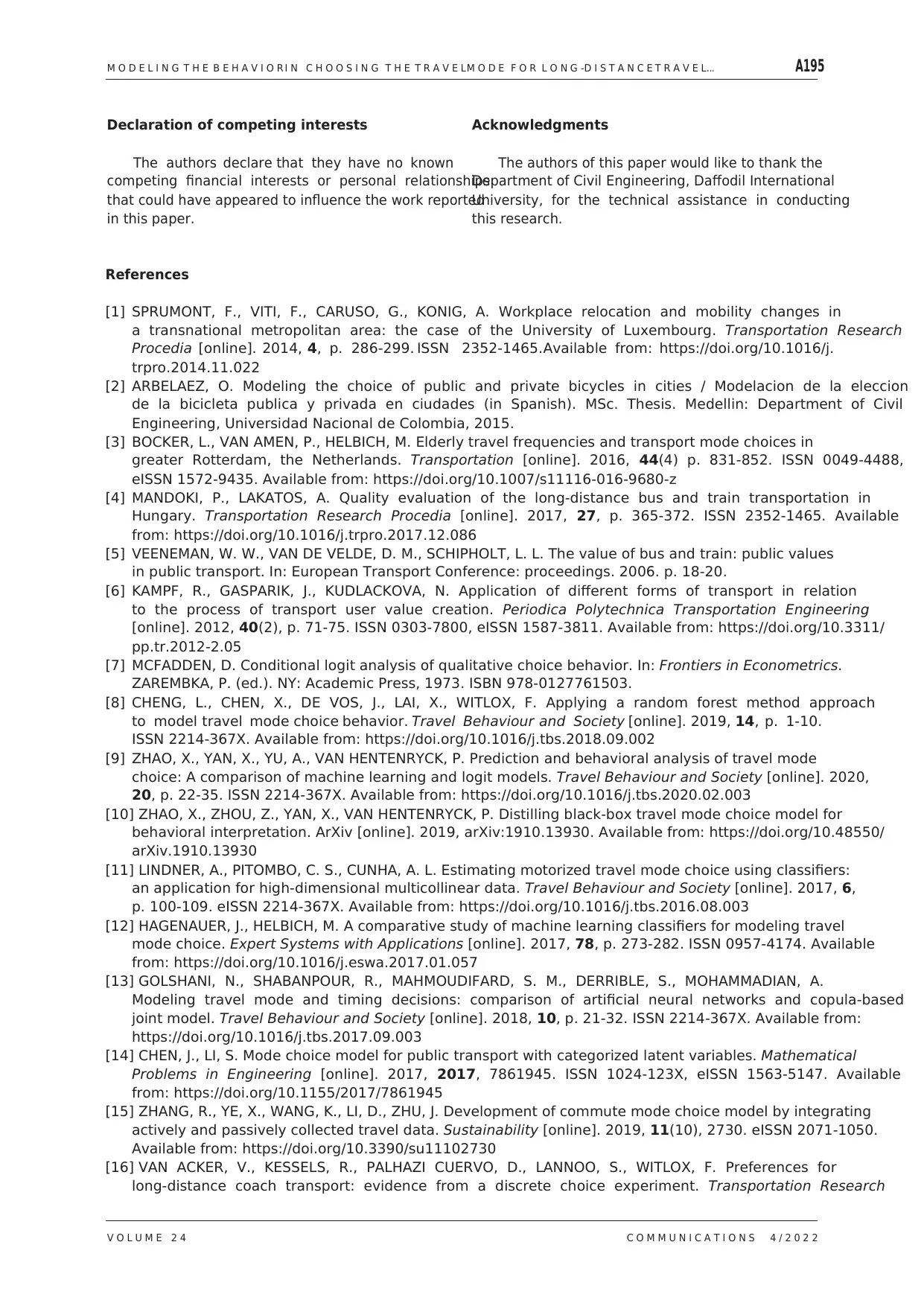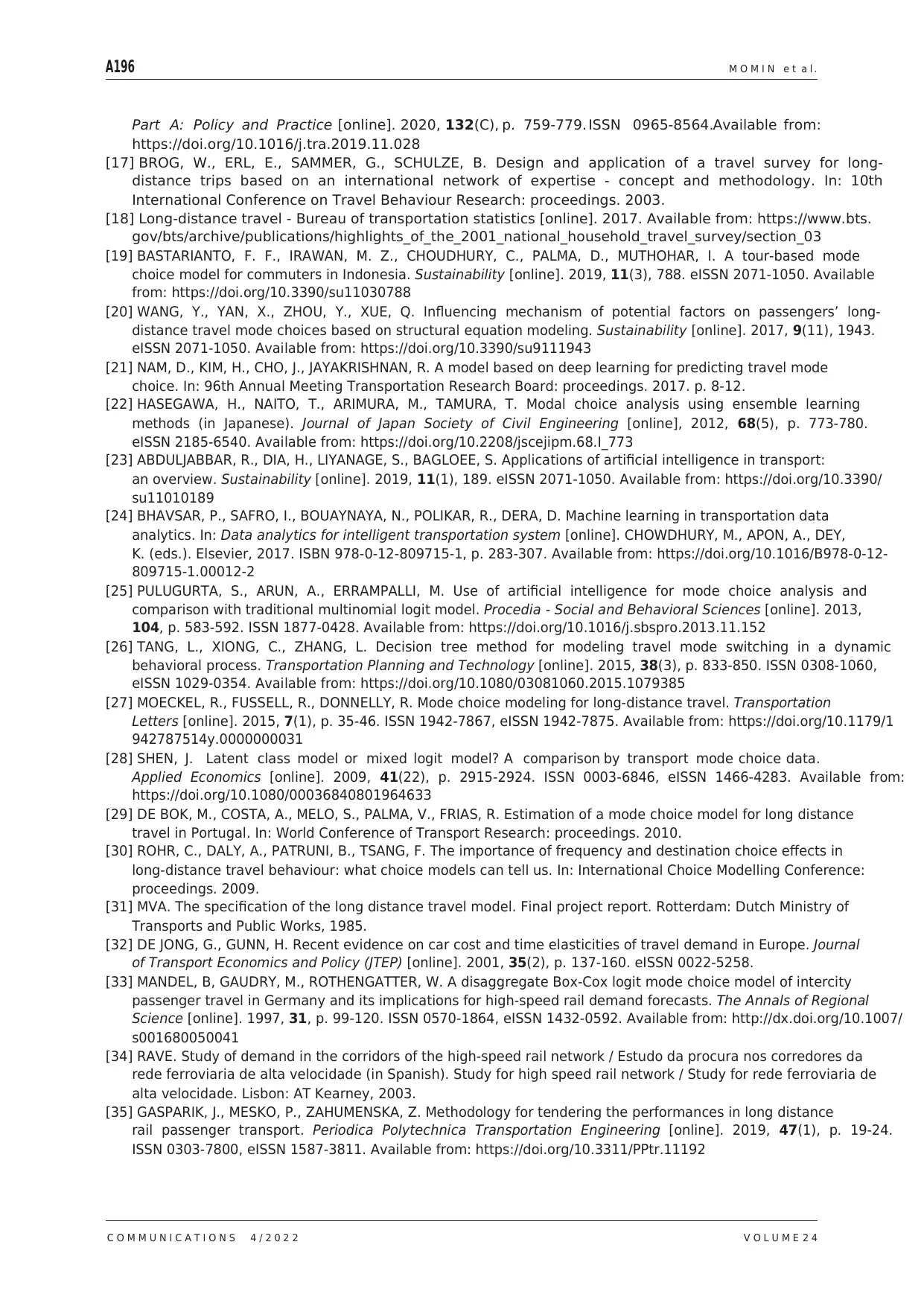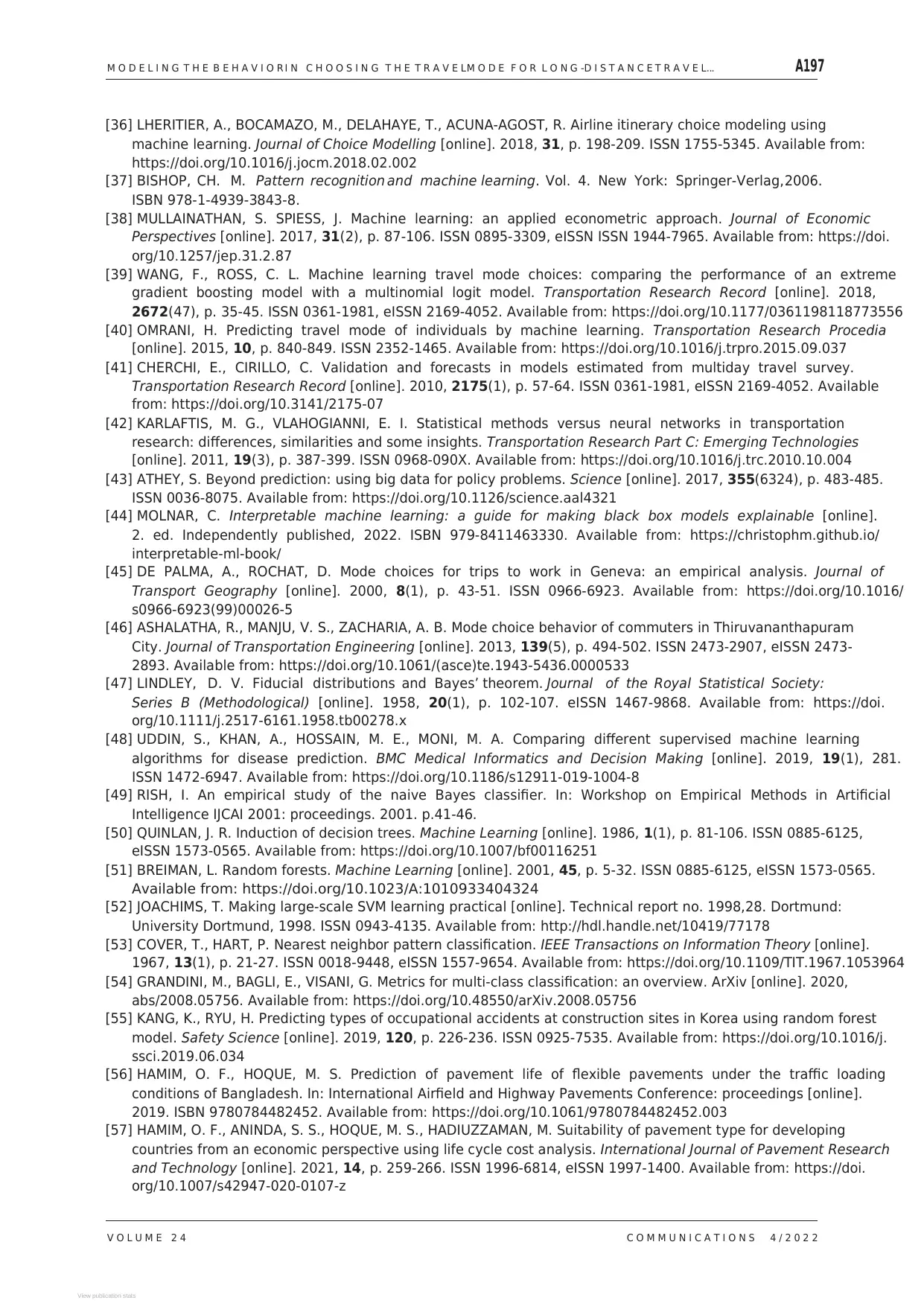This study investigates the factors influencing long-distance travel mode choice between intercity buses and trains in Bangladesh. A questionnaire survey was conducted to gather data on travel preferences, demographics, and socioeconomic factors. Supervised machine learning algorithms, including Naive Bayes, Support Vector Machine, Decision Tree, Random Forest, and K-Nearest Neighbors, were employed to develop a mode choice prediction model. The Random Forest model emerged as the best performer, achieving 95.31% accuracy and 0.95 F1-score. The study reveals that reliable journey time, travel time, proximity to destination, journey location, and travel frequency are the most significant factors influencing mode choice. The findings suggest that intercity buses are preferred over trains for long-distance travel in Bangladesh, primarily due to factors like reliable journey time and travel time.
![[object Object]](/_next/static/media/star-bottom.7253800d.svg)
![[object Object]](/_next/static/media/star-bottom.7253800d.svg)
